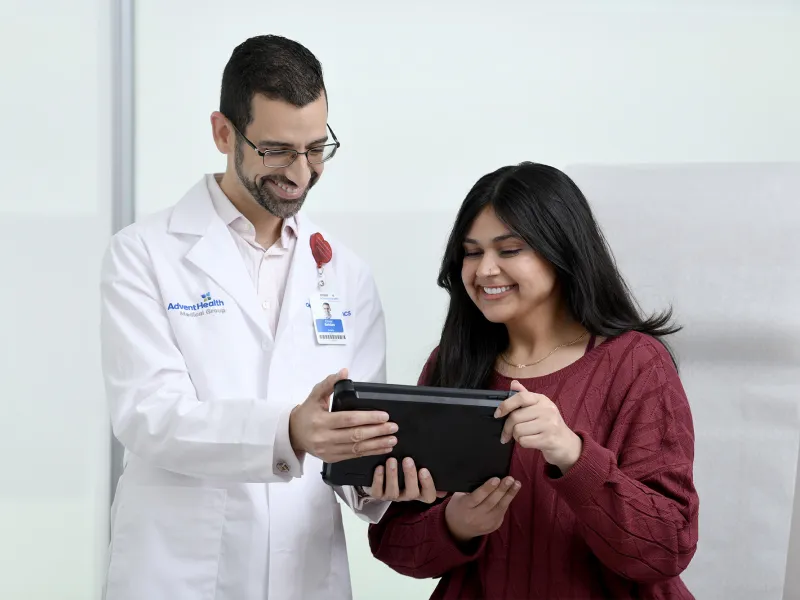
AdventHealth Digestive Health Institute Doctors Are Highly Experienced in Treating Gastroesophageal Reflux Disease
The Digestive Health Institute has a wealth of experience in treating patients with severe cases of gastroesophageal reflux disease (GERD) and laryngopharyngeal reflux. They offer minimally invasive surgeries that cure reflux for a large majority of their patients. After their surgeries, most of these patients no longer need to take anti-acid medications.
Whole-Person Care for GERD
Before you can be considered for GERD surgery, you will need to be treated with medicine. DHI gastroenterologists are experts in helping patients manage their GERD through medicine and lifestyle habits such as making diet changes, losing weight and quitting smoking. At first, your doctor might recommend over-the-counter antacids or prescription medications that stop acid production or help the muscles that empty the stomach. Antacids calm down, or neutralize, stomach acid.
Medications that are commonly used to reduce the amount of stomach acid the body makes are H2 blockers and proton pump inhibitors (PPIs). These medications work very well, but they should only be taken for a short time. Their long-term use can be harmful. H2 blockers and PPIs have been linked with osteoporosis (bone loss), kidney disease, dementia, heart problems and adverse drug interactions. They also produce effects that can eventually cause esophageal cancer.
While medical treatment works for some patients, PPIs are not intended for use over long periods. In fact, FDA approval of PPIs is for using them only 6 weeks per year. Therefore patients who respond well to medical treatment, as well as those who do not, should be evaluated for definitive treatment of GERD. A definitive treatment is a more permanent approach that allows patients to stop taking PPIs. For many patients, definitive treatment is an operation that strengthens the valve between the esophagus and the stomach. Patients who cannot have surgery may benefit from endoscopic approaches to treating GERD. While these treatment options are more involved than taking medicine and making lifestyle changes, they can effectively control GERD and help patients avoid the risks associated with PPIs.

Meet Your Dedicated Experts
Our specialists are passionate about providing collaborative care that addresses your unique needs and goals while ensuring you feel informed and supported every step of the way. Learn more about our team and their areas of expertise.

Surgical Consultations For Digestive Cancer Without the Wait
Appointments Within Seven Days for Patients with Cancer
At AdventHealth Digestive Health Institute, we know that after being diagnosed with cancer, patients want and often need to begin treatment quickly. So we make it a priority to offer appointments for cancer surgery consultations within five business days, and often earlier.
Patients who are newly diagnosed with cancer, or have just found out they have cancer again, qualify for this priority access. Our surgeons will make themselves available to see you right away, even for a second opinion. We want to help you start your treatment as soon as possible.
Let Us Help You Feel Whole Again
Whether you’re experiencing new symptoms or want a second opinion on a diagnosis, our dedicated digestive health experts are here to help you find answers and a path forward. Request an appointment today to take charge of your health and get the personal support you need.
